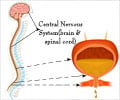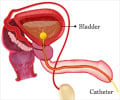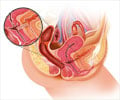Women who have not given birth are less likely to suffer from urinary incontinence compared to pregnant women.

‘Women who have not given birth are less likely to suffer from urinary incontinence compared to pregnant women.’





The study, published in the American Journal of Obstetrics and Gynecology, involved about 9,200 women aged 25-64 years who had never given birth. In the category of young women (25-35 years) with normal weight (BMI up to 25), 10 percent said they had urinary incontinence. Among the oldest in the study (55-64 years) with a BMI over 35, almost every other woman experienced this type of incontinence. Seventeen percent of women over 55 said they had to get up and urinate at least twice every night.
For those who reported incontinence, 25-30 percent experienced their incontinence as bothersome.
"The original purpose of the study was to measure the effects of pregnancy in itself and the potential protective effect of caesarean section. At the same time, we have collected the world's first and most detailed data for this particular reference group," Maria added.
The study confirms that problems are found in all groups, and that women have a weakness of the pelvic floor even if they have not previously given birth.
Advertisement














